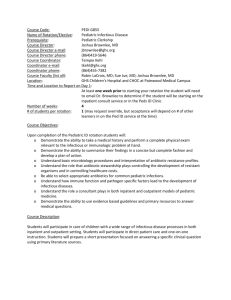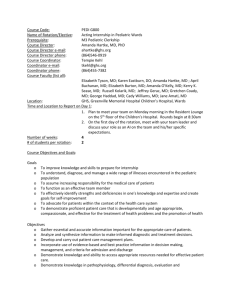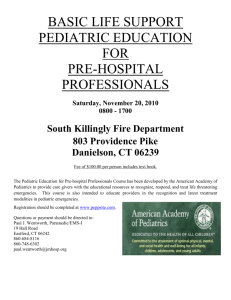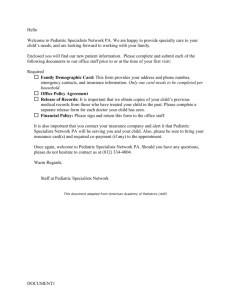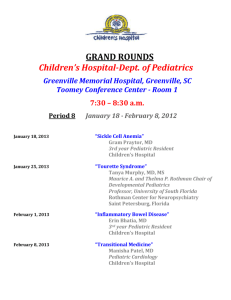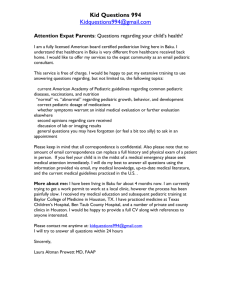ADOLESCENT MEDICINE ROTATION
advertisement
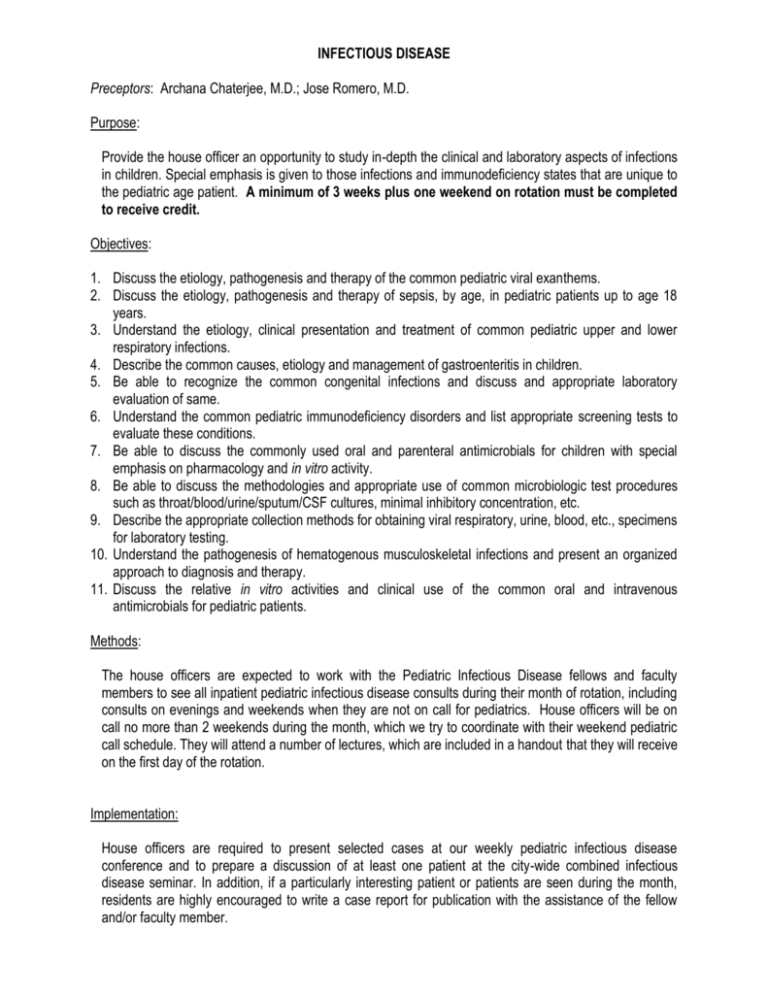
INFECTIOUS DISEASE Preceptors: Archana Chaterjee, M.D.; Jose Romero, M.D. Purpose: Provide the house officer an opportunity to study in-depth the clinical and laboratory aspects of infections in children. Special emphasis is given to those infections and immunodeficiency states that are unique to the pediatric age patient. A minimum of 3 weeks plus one weekend on rotation must be completed to receive credit. Objectives: 1. Discuss the etiology, pathogenesis and therapy of the common pediatric viral exanthems. 2. Discuss the etiology, pathogenesis and therapy of sepsis, by age, in pediatric patients up to age 18 years. 3. Understand the etiology, clinical presentation and treatment of common pediatric upper and lower respiratory infections. 4. Describe the common causes, etiology and management of gastroenteritis in children. 5. Be able to recognize the common congenital infections and discuss and appropriate laboratory evaluation of same. 6. Understand the common pediatric immunodeficiency disorders and list appropriate screening tests to evaluate these conditions. 7. Be able to discuss the commonly used oral and parenteral antimicrobials for children with special emphasis on pharmacology and in vitro activity. 8. Be able to discuss the methodologies and appropriate use of common microbiologic test procedures such as throat/blood/urine/sputum/CSF cultures, minimal inhibitory concentration, etc. 9. Describe the appropriate collection methods for obtaining viral respiratory, urine, blood, etc., specimens for laboratory testing. 10. Understand the pathogenesis of hematogenous musculoskeletal infections and present an organized approach to diagnosis and therapy. 11. Discuss the relative in vitro activities and clinical use of the common oral and intravenous antimicrobials for pediatric patients. Methods: The house officers are expected to work with the Pediatric Infectious Disease fellows and faculty members to see all inpatient pediatric infectious disease consults during their month of rotation, including consults on evenings and weekends when they are not on call for pediatrics. House officers will be on call no more than 2 weekends during the month, which we try to coordinate with their weekend pediatric call schedule. They will attend a number of lectures, which are included in a handout that they will receive on the first day of the rotation. Implementation: House officers are required to present selected cases at our weekly pediatric infectious disease conference and to prepare a discussion of at least one patient at the city-wide combined infectious disease seminar. In addition, if a particularly interesting patient or patients are seen during the month, residents are highly encouraged to write a case report for publication with the assistance of the fellow and/or faculty member. A required reading list is provided to the house officers on the first day of the rotation. This photocopied book is provided gratis to the residents and includes a number of selected literature references in pediatric infectious disease. In addition, all house officers are required to read the entirety of Krugman’s Infectious Diseases of Children, a copy of which may be borrowed from our office at the beginning of the rotation. Evaluation: The final evaluation for this rotation will be a composite of performance on daily rounds, weekly presentations at the Pediatric Infectious Disease Conference, and a final examination at the end of the month.
